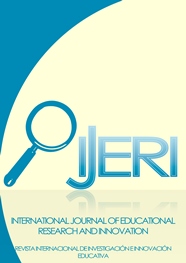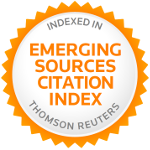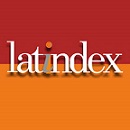How to Teach Online? Recommendations for the assessment of online exams with University students in the USA in times of pandemic
DOI:
https://doi.org/10.46661/ijeri.5003Keywords:
Online, exams, cheating, plagiarismAbstract
We evaluated 350 US University Business Students, comparing in-class and online exams to see differences in type of student and class and evaluating possible cheating impact. After basic statistical analysis (T-Student and correlations), we found that differences in grades related to type of students and type of class are more significant that those associated to online with in-class exams. Results are aligned with literature. In accordance with the results of this and previous studies, we do not expect significant higher level of cheating in online exams versus traditional in-class exams. We justify this based upon the reality, broadly reflected in the literature, that cheating is already quite present, before the coronavirus pandemic Many countries have 50%-85% of University students reporting cheating at least once. Cheating is not an specific online problem. Teaching online brings new challenges and opportunities. We recommend to re-evaluate pedagogical methods and engage more in continuous evaluations, relaying less in exams. Code of Conducts, the use of cheating detection algorithms, data analytics from the online Learning Management Systems for assessment and cheating checking programs available (Turnitin and others) to review online exams is recommended. We should help students understand the importance of learning over grades. Also faculty should online teaching faster be at the same level than students in technology and digital capabilities; the closer we are with our students the more effective we can assess them and, more important, we can contribute more and better to their learning and education.
Downloads
References
Bernardi, R. A., Metzger, R. L., Bruno, R. G. S., Hoogkamp, M. A. W., Reyes, L. E. and Barnaby, G. H. (2004). Examining the decision process of students’ cheating behavior: An empirical study. Journal of Business Ethics, 50, 397-414.
Bloom, J. (2020) Coronavirus: Universities fear fall in lucrative overseas students, BBC online, 20th of May. Retrieved from: https://www.bbc.com/news/business-52508018
Borkowski, S. and Ugras, Y. (1992). The ethical attitudes of students as a function of age, sex, and experience. Journal of Business Ethics, 11 (12) 961-979.
Brown, G. A., Bice, M. R., Shaw, B. S. and Shaw, I. (2015). Online quizzes promote inconsistent improvements on in-class test performance in introductory anatomy and physiology. Advances in Physiology Education, 39(2), 63–66. https://doi.org/10.1152/advan.00064.2014
Chapman, K. J. and Lupton, R. A. (2004). Academic dishonesty in a global educational market: A comparison of Hong Kong and American university business students. The International Journal of Educational Management, 18(7), 425-435.
Diekhoff, G. M.; LaBeff, E., Shinohara, K. and Yasukawa, J. (1999). College cheating in Japan and the United States. Research in Higher Education, 40(3), 43-63.
Educational Testing Service and Ad Council. (1999). Cheating is a personal foul: The Educational Testing Service and Ad Council campaign to discourage academic cheating. Retrieved from: http://www.glass-castle.com/clients/www-nocheating-org/adcouncil/research/cheatingfactsheet.html
Eurostat. (2020). Tertiary Education Statistics. European Union. Retrieved from: https://ec.europa.eu/eurostat/statistics-explained/index.php/Tertiary_education_statistics
Gewertz, C. (2013). Transition to online testing sparks concerns. Retrieved from: https://www.edweek.org/ew/articles/2013/10 /30/10pencil_ep.h33.html
Giustolisi, R. (2018). Modelling and Verification of Secure Exams, Information Security and Cryptography, Springer International Publishing AG 2018. https://doi.org/10.1007/978-3-319-67107-9_1
Graves, L. (2008.). Which Types of Students Cheat Most? Retrieved from: https://www.usnews.com/education/articles/2008/10/03/which-types-of-students-cheat-most
Grijalva, T., Nowell, C. and Kerkvliet, J. (2006). Academic honesty and online courses. College Student Journal, 40(1), 180-185.
Gurung, A.R., Wilhelm, T.M. and Fliz, T. (2012) Optimizing Honor Codes for Online Exam Administration, Ethics & Behavior, 22(2), 158–162. DOI: 10.1080/10508422.2011.641836
Hale, I. (2020) Providing Online Exams for Online Learners: Does It Really Matter for Them? Education and Information Technologies, 25 (2),1255-1269. http://dx.doi.org.proxy-ln.researchport.umd.edu/10.1007/s10639-019-10020-6
Harwell, D. (2020). Mass school closures in the wake of the coronavirus are driving a new wave of student surveillance. Washington Post, Retrieved from: https://www.washingtonpost.com/technology/2020/04/01/online-proctoring-college-exams-coronavirus/
Humbarger, M. and DeVaney, S. (2005). Ethical values in the classroom: How college students responded. Journal of Family and Consumer Sciences, 97 (3) 40-47.
International Center for Academic Integrity. (n.d.). Integrity: Statistics. Retrieved from: http://www.academicintegrity.org/icai/integrity-3.php
Jorczak, R. and Dupuis, D.N. (2020) Differences in Classroom versus Online Exam Performance Due to Asynchronous Discussion. Journal of Asynchronous Learning Networks, 18 (2), 1-9. Retrieved from: https://eric.ed.gov/contentdelivery/servlet/ERICServlet?accno=EJ1036271
King, C., Guyette, R. and Piotrowski, C. (2009). Online exams and cheating: An empirical analysis of business students’ views. The Journal of Educators Online, 6(1), 1-11.
Lanier, M. (2006). Academic integrity and distance learning. Journal of Criminal Justice Education, 17(2), 244-261.
Lau, J, Yang, B. and Dasgupta, R. (2020) Will the coronavirus make online education go viral? Time Higher Education. Retrieved from: https://www.timeshighereducation.com/features/will-coronavirus-make-online-education-go-viral
Levitt, S.D. and Lin, M-J. (2015). Catching Cheating Students, National Bureau of Economic Research. Cambridge, Mass. Retrieved from: http://www.nber.org/papers/w21628
Lin, Ch.-H y Wen, L.-Y. (2007). Academic dishonesty in higher education: A nationwide study in Taiwán. Higher Education, 54(1), 85-97.
Liu, I. F., Chen, R. S., and Lu, H. C. (2015). An Exploration into Improving Examinees’ Acceptance of Participation in an Online Exam. Educational Technology & Society, 18 (2), 153–165.
Lupton, R. A. and Chapman, K. J. (2002). American and Russian University Business students’ attitudes, perceptions and tendencies toward cheating. Educational Research, 44(1), 17-29.
Marius, P., Marius, M., Dan, S., Emilian, C., & Dana, G. (2016). Medical students’ acceptance of online assessment systems. Acta Medica Marisiensis, 62(1), 30–32. Retrieved from: https://doi.org/10.1515/amma-2015-0110
McCabe, D. L., Treviño, L., and Butterfield, K. D. (1996). The influence of collegiate and corporate codes of conduct on ethics-related behavior in the workplace. Business Ethics Quarterly, 6(4), 461- 476.
McCabe, D., Treviño, L., and Butterfield, K. (2002). Honor codes and other contextual influences on academic integrity: A replication and extension to modified honor code settings. Research in Higher Education, 43, 357–378.
Moreno Olmedilla, J. M. (1999). Con trampa y con cartón: el fraude en la educación, o cómo la corrupción también se aprende. Cuadernos de Pedagogía, 283, 71-77.
Ogletree, A., Ogletree, S. and Allen, B. (2014). Transition to online assessments: A personal perspective of meeting common core state standards in an elementary school in Georgia. Georgia educational researcher, 11(1), 170–187. https://doi.org/10.20429/ger.2014.110107
Ruegger, D. and King, E. (1992). A study of the effect of age and gender upon student business ethics. Journal of Business Ethics, 11 (3) 179-186.
Russell, S. M. and James, L. R. (2008). Recording lying, cheating, and defiance in an Internet Based Simulated Environment. Computers in Human Behavior, 24(5), 2014-2025.
Seaman, J.E., Allen, I.E. and Semana, J. (2018) Grade Increase Tracking Distance learning Education in the United States.
Babson Survey Research group. Babson College. Retrieved from: http://www.onlinelearningsurvey.com/highered.html .
Schaffhauser, D. (2017). 9 in 10 Students Admit to Cheating in College, Suspect Faculty Do the Same. Campus Technology. Retrieved from: https://campustechnology.com/articles/2017/02/23/9-in-10-students-admit-to-cheating-in-college-suspect-faculty-do-the-same.aspx
Shepard, J. and Hartenian L. (1991). Egoistic and ethical orientations of university students toward work- related decisions. Journal of Business Ethics, 10(4), 303-310.
Sorensen, T. (2020). 3 Online Testing Considerations for 2019-2020 AP Students, US News. Retrieved from: https://www.usnews.com/education/blogs/college-admissions-playbook/articles/online-testing-considerations-for-2019-2020-ap-students
Stevenson, M. J. (1999). Measuring the cognitive moral reasoning of collegiate students-athletes: The development of the
Stevenson-Stoll responsibility questionnaire. Dissertation Abstracts International: Section B: The Sciences and Engineering, 59 (11-B) 6114.
Spivey, M. F. and Mcmillan, J. J. (2014). Classroom versus online assessment. Journal of Education for Business, 89, 450–456. https://doi.org/10.1080/08832323.2014.937676
Stuber-McEwen, D., Wiseley, P., and Hoggatt, S. (2009). Point, click, and cheat: Frequency and type of academic dishonesty in the virtual classroom. Online Journal of Distance Learning Administration, 12(3), 1-10.
Sureda, J., Rubrn, F. and Gli, M. (2009) Academic Dishonest Practices amongst Spanish University Students on Taking Exams and Tests. Estudios sobre Educación, 17, 103-122.
Underwood, J. & Szabo, A. (2006). Active Learning in Higher Education, 5(2), 180-199.
Watson G. & Sottile J. (2010) Cheating in the Digital age: Do Students Cheat more in online courses? Online Journal of Distance Learning Administration, 13 (1), 1-12. Retrieved from: https://www.westga.edu/~distance/ojdla/spring131/watson131.html
Niiya, Y., Ballantyne, R., North, M. & Crocker, J. (2008). Gender, Contingencies of Self-Worth, and Achievement Goals as Predictors of Academic Cheating in a Controlled Laboratory Setting. Basic and Applied Social Psychology, 30 (1), 76-83. https://doi.org/10.1080/01973530701866656
Downloads
Published
How to Cite
Issue
Section
License
Copyright (c) 2020 JUAN RIVERA-MATA

This work is licensed under a Creative Commons Attribution-NonCommercial-NoDerivatives 4.0 International License.









